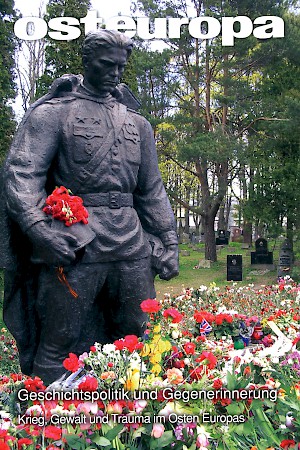Clio, the Muse of History
Lithuanian verse under the Soviet and German occupations, 1939–1942
Deutsche Fassung
Abstract
The outbreak of the Second World War put an end to neo-romantic inwardness in Lithuanian literature. The war gave rise to a return to national romanticism and Proletkult, which writers used to celebrate the Soviet cession of Vilnius to Lithuania in October 1939 and even the invasion of the Red Army in June 1940, an event that was at first seen as liberation from the Smetona regime. In the autumn of 1940, when the violent Sovietisation of Lithuania set in, and in June 1941, when a Lithuanian uprising against the Soviet occupation broke out parallel to the German invasion of the Soviet Union, the lamentations, accusations, and appeals also fell back on rhetoric and stylistics that had been handed down. Only the repeated, deep disappointment, the excesses of violence, and the complete hopelessness under German occupation, in which a new Soviet occupation was heralded, brought Lithuanian verse a modern universality, new subjects and motifs. Lithuanian verse turned away from the national ideal towards a universal humanism. The poetological connections and transitions, in particular between Neo-romanticism and Socialist Realism, are fluid and have hardly been explored so far.
(Osteuropa 6/2008, pp. 373–416)



